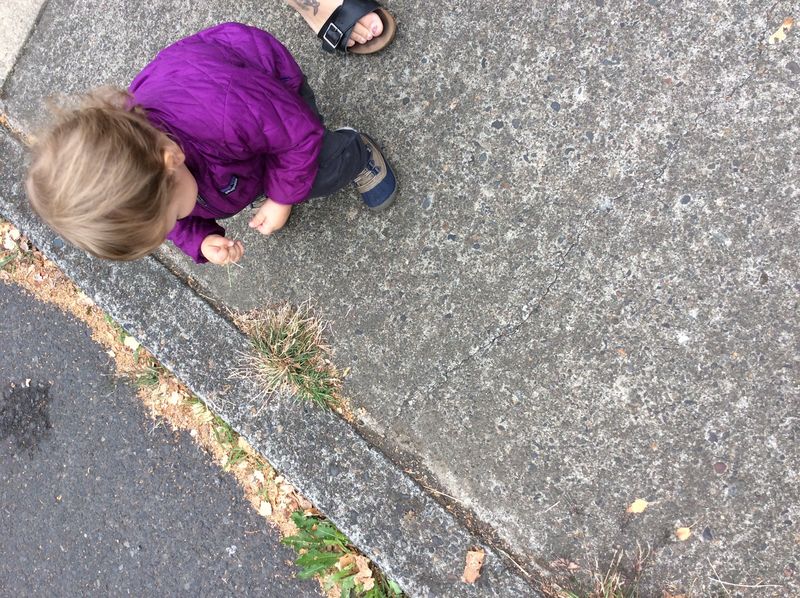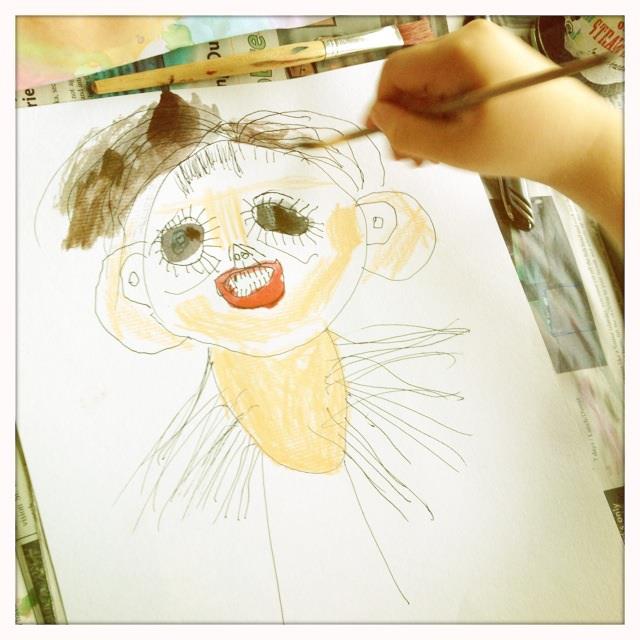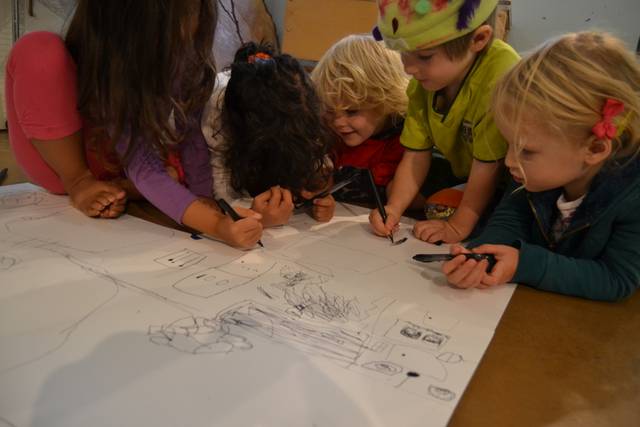Matters of Opportunity: Does opportunity matter?

We love hearing from colleagues beyond Opal School’s walls regarding how Opal School is provoking fresh thinking. Today’s post comes from Sarah-Luella Baker, who presented at our 2014 Summer Symposium. It is co-posted from the Tulip Tree Preschool blog.
Matters of Opportunity.
Does opportunity matter?
Journals from the Atelier – Sarah-Luella Baker, Tulip Tree Preschool
It is interesting to think about where our emphasis lies as co-learners (and by this I mean as adults who work with children, in place of the word teacher). Does it lie in skills acquirement- physical, cognitive, etc? Or does it lie in depth of connection? Are we fundamentally learning, along with young children, to operate on the surfaces of reality? Or is our job to learn, alongside children, the many different layers of being alive?
These are some questions that I jotted down in a moment of deep frustration as we attended this year’s conference with the Oregon Association for the Education of Young Children. As I was writing I reflected on a juxtaposition that I had encountered at the conference for the first time the previous day. The Opal School was presenting this year. They hold many workshops and a symposium at their school each year, but it was the first time that they had chosen to present a workshop at this conference. After purposefully leaving one workshop by a different presenter halfway through, I went directly to the Opal School presentation, and was satisfied for the rest of the afternoon by stories of children’s learning that captivated my heart, and reflections by teachers who were invested in their children, their stories, and the poetry of their work. This difference was intriguing to me- one workshop that I could not stand to sit through, and another that captured my heart and mind.
I wrote: It seems that we become so culturally obsessed with the fragmentation of everything in our paths, and that our job as teachers who are creative and “deep thinkers” (more on this later), is to resist fragmentation of our selves and our communities. And especially the fragmentation of the growth of our children.
These two moments of reflection led me to question what we are really doing as teachers. When we use the term co-learner in the field of Reggio-inspired learning, what do we really mean? If we are co-learners, then we are learning alongside children… The implications for society are two-fold. If we are teaching children to live on the surfaces of reality, then we too, are being trained by ourselves to live on that surface. We are training not only our children but ourselves, to disconnect. If we are disconnected, then we do not care. Likewise, if we are teaching and learning in this way, children do not care. Think about those outcomes…
Vea Vecchi, one of Reggio Emilia’s great thinkers and atelieristas, offers the following:
Each discipline- or rather language- is made up of rationality, imagination, emotion, and aesthetics. Cultures which rigidly separate these qualities and processes of thinking inevitably tend to subtract part of the processes from the various disciplines or languages. They recognize the rational part of an engineer, the imaginative part of an architect, the cognitive part of a mathematician, the expressive part of an artist and so on, in simple categories.
In this act of fragmentation and exclusion of some of the processes which, I repeat, belong to our species’ way of thinking and constitute a biological inheritance that is probably ancestral, cultural resources are effectively diminished and there is a consequent impoverishment in the overall quality of concepts and thinking.
Rationality without feeling and emptahy, like imagination without cognition and rationality, build up partial, incomplete human knowledge.
At the conference I also noticed the apparent difference in the quality of the minds and thoughts of the educators who were present. The threads ran deep and wide.
I am struck by the general carelessness of many educators’ approaches to young children and the work that we do. Or perhaps it is the lack of time that we allow for reflection, so that all of our time is spent trying to get somewhere, and then where are we? Are we so rushed that we cannot slow down to express, question, become?
How much of the carelessness is the result of not being cared for? I had a conversation about these matters with a friend recently and she brought up the idea that some of us are “deep thinkers”. Some of us are poetic. Some of us are musical. Some of us are… fill in the blanks. Which leaves the assumption that, well, some of us are not. This is a comforting thought, if you are one of those “deep thinkers”. But as I was speaking with her I questioned this. What if it’s just a matter of opportunity? What if that line of thinking is a systemic way of maintaining the status quo? What if we as a world, have so much unlocked potential that to experience it might be world-changing?
I mean, at the risk of sounding too optimistic, what if it’s about opportunity?
I see teachers who, when posed with the idea that a young child may have “rights”, roll their eyes or smack their lips. I gather that these people have never felt that same respect as a child, and that perhaps the poetic voice inside them has never been given any length of rope.
Children have the right to play, to explore, and to learn by doing. They have the right to become deep thinkers, no quotes.
Children need what we rarely give them in school – time for Messing About. – John Holt
Have we lived in a time before when Art equated to life? It is happening now inside certain educational philosophies, inside certain communities. I am hopeful that this is the way the world is turning. The education of people is so much bigger than lines on paper or the unfortunately fragmented thinking that happens in so many schools.
The atelier, the studio, is a small fraction of our classroom. Our whole classroom is the atelier, is the studio. We are works in progress, as is our world. Play teaches us that we have choice, opportunity. The atelier is a small fraction of our world. Our whole world is the atelier, is the studio. Children, people, need choice, need opportunity, to play, to think, to Mess About. Many children do not have this opportunity. Much of our thinking becomes fragmented early on in life. We have great power as teachers, parents, caregivers- to learn alongside with children about our individual voices, our collective voice, and our right to become poets.




I am so inline and inspired with your thinking and wondering about opportunity and of course the role time, intention, and equity have in that equation.
The understanding that we all hold these multitude of gifts, adults and children alike, which can be brought to light and given opportunity to grow if we cherish even their smallness and nurture them knowing that they will feed us and the world!!! …Possibly even nurture us out of this pervasive educational stasis!!
Thanks for the reminder!